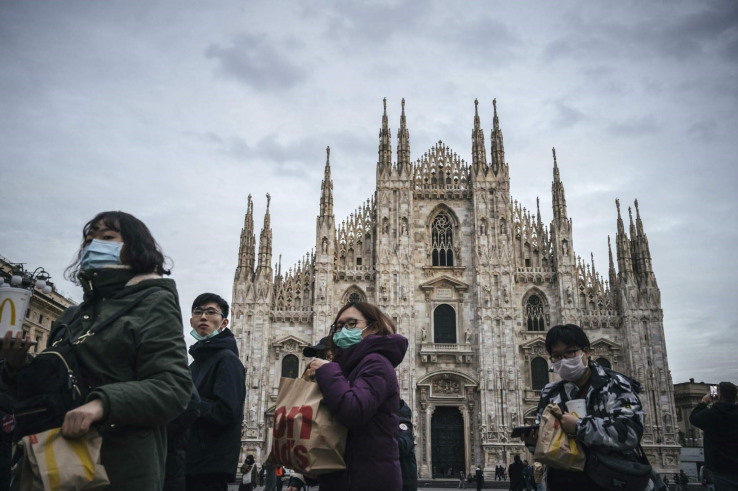Sabin Selimi

If member states cannot rely on one another in coordinating efforts to fight the spread of the disease, how would the EU respond in case of a crisis even more devastating than the current pandemic?
The hardest blow to the EU as a global player were the Yugoslav wars of the 1990s, where the limitations of its soft power were never more exposed. Since then, the EU has endured a series of crises. The first was the financial crisis in 2008, which fueled considerable resentment between creditor and debtor member states. The second was the refugee crisis in 2015, which further divided the bloc and exposed the cracks on its surface. The third came from the United Kingdom’s departure, whose full ramifications will not be known for some time. The latest is the refugee crisis at the border between Greece and Turkey, followed by the outbreak of novel coronavirus.
Try to google “Europe” and “crisis”. One billion results will turn up. With each new crisis in the EU, these two terms appear together and have become a compound noun. The problems the bloc is facing go far beyond these developments that have taken place over the past two decades. They raise serious questions about the future role of the EU as a global player.
The structural problem
Apart from trade negotiations, where the EU generally speaks with one voice, the bloc is not capable of producing a common policy on major strategic questions. Coherence and consistency were two of the main driving forces that led to the Lisbon Treaty signed in 2007, which amends the Maastricht Treaty (1993) and the Treaty of Rome (1957), forming the constitutional basis of the EU. However, the treaty makes very few changes on the ground, except for some small adjustments like reducing the number of officials speaking on behalf of a collection of sovereign states, whose national interests often diverge. The high representative that deals with the EU’s foreign policy, which in reality acts as a quasi-foreign minister of the bloc, does not have the capacity to do much than hold meetings and make speeches.
Take the question of Libya. Continued anarchy there is a serious problem for the EU. The summit meeting in Berlin, convened by German Chancellor Angela Merkel, produced a ceasefire agreement among the warring factions in Libya that promptly broke down. Take also the EU’s policy toward Russia. French President Emmanuel Macron is concerned about Moscow mending fences with Beijing, and he seems to want to wean Russia away from China. However, such approach is alarming to member states in Eastern Europe. Or take the stalled enlargement process in the Balkans. How can the EU have a common policy on foreign and security matters when it cannot agree on its approach to a strategically important region at its doorstep like the Balkans?
After Brexit, any room the EU walks into, it will carry less weight than when the UK was a member state. London acted as a sort of pragmatic balance between the two European poles, Paris and Berlin. The UK’s departure will make some of the divisions starker and weaken the cohesion further, changing the balance within the bloc and creating a power vacuum. It could undermine the EU’s ability to pursue an independent foreign policy and lose its credibility further on the global stage.
The long-term demographic crisis
The EU is also facing a long-term demographic crisis. Europe is now the world’s oldest continent. In the Balkans and generally Eastern Europe, this problem has been compounded by brain drain, with the skilled youth heading westward in search of job opportunities and better living standards. The Croatians, with their entry into the EU in 2013, began to leave their country in large numbers. Fewer young people means slower growth.
So, what would be one solution to the EU’s demographic crisis? Encourage greater immigration from other parts of the world. However, as the refugee crisis in 2015 suggests, it can have unpredictable political consequences. There were member states refusing to accept refugees under a solidarity scheme. Given the clear opposition to immigration from xenophobic nationalists, it is hard to see this problem as an easy fix, especially now that lockdowns and travel restrictions could potentially legitimize the nationalist rhetoric around border walls.

Soruce: schengenvisainfo.com
The coronavirus crisis
The coronavirus crisis is similar to the refugee crisis as countries not immediately affected by the virus are least likely to cooperate and help the others. The leaders’ first instinct was to seal their borders. Such selfishness is morally lamentable. The member states’ reaction to the crisis vindicates their Hobbesian view of the world. A struggling country like Italy has dragged the others down, too, starting with their interdependent economies. With the current lack of solidarity, the EU might lose affection of many of its member states, not to mention those waiting in the lobby to join the bloc, i.e. the Balkan potentials. And China will be more than happy to fill that void.
When the virus broke out in Wuhan, the mainstream opinion in the EU chose to watch the crisis in ignorance. That changed when Italy found itself with more than a thousand cases and dozens dead. With the daily cases of virus infections in mainland China dwindling, Beijing has mounted a diplomatic offensive to send assistance to EU member states struggling to contain the pandemic. “We’re grateful for China’s support,” the president of the European Commission, Ursula von der Leyen, said in a tweet. A Balkan country not a member, Serbia, appealed for help not from the EU, which restricted the export of needed medical equipment, but from China. “European solidarity does not exist,” Serbian President Aleksandar Vucic said when he announced a state of emergency in his country. This is the moment China repositions itself not only in Europe, but in the international arena too, as a responsible global leader in times of public health emergency.
Many member states feel alone in the coronavirus crisis. Regardless of whether this is true, such a perception undermines solidarity, which points to a larger problem. If member states cannot rely on one another in coordinating efforts to fight the spread of the disease, how would the EU respond in case of a crisis even more devastating than the current pandemic?
The core problem
The core problem is that back then the founders thought that they could get away without pursuing an independent foreign policy. During the Cold War, the limitations of this approach were camouflaged by the powerful role of the United States. The EU back then did not need a coherent approach to world affairs, because issues pertaining European security were handled by NATO, and the United States ran the show.
When the Cold War ended, however, the EU quickly decided that civilian power would be sufficient, as long as the United States was still willing to be on the front lines of European defense. Many member states, including France and Germany, do not meet NATO’s 2% target. US defense spending has always been higher than other members’ budgets since the creation of NATO, but the gap grew wider after the terrorist attacks on 11 September 2001. All this raises the question of how the changing landscape in the continent will affect the EU’s security architecture.
There is a growing belief among Europeans that Washington’s strategic attention has shifted away from Europe and viewing their main security challenges in Asia as the balance of power shifts in that direction. German Chancellor Angela Merkel’s solution is “more Europe”, i.e. deepening integration. However, none of the member states are true heavyweights on the world stage. Their relative position in the international arena will erode further if they will not be able to shape events in their immediate vicinity like the Balkans, let alone acquire the capabilities needed to stand up to stronger powers like China.
If the EU were to become more capable, dynamic and cohesive, especially when we emerge from the lockdown, the United States and other allies would no doubt see it as a more valuable partner. A global player like China would see it as a force to recon with. In other words, a weak, divided and paralyzed EU is not worth spending much time or effort to consider dealing with.


